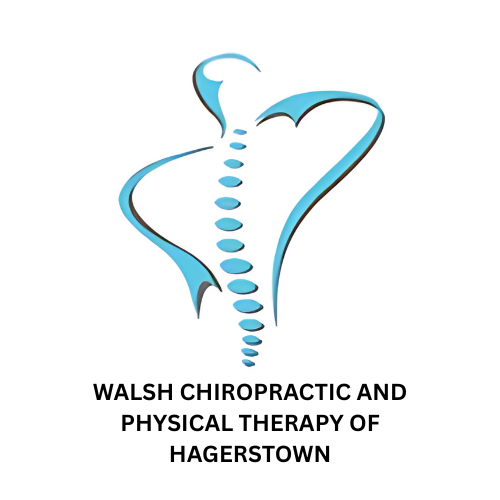What Is Bursitis? Why Your Joints Hurt and How to Get Relief
- Patrick Walsh

- May 12, 2025
- 4 min read
Updated: Nov 22, 2025
That Nagging Joint Pain? It Might Be Bursitis.
Ever feel a sharp ache in your hip when climbing stairs? Or a burning sensation in your elbow after working all day? That’s not just “getting older”—it could be bursitis.
Bursitis is one of the most common reasons people come in complaining of joint pain, especially in active adults and aging populations. Whether it’s your shoulder, hip, or knee—bursitis can limit movement, disrupt sleep, and make your favorite activities painful.
But here’s the good news: it’s treatable. And with the right care, you can get back to moving freely again—without relying on medication or surgery.
What Is Bursitis?

A Simple Explanation
Inside your body, there are little fluid-filled sacs called bursae (think of them as shock absorbers). They sit between bones, muscles, and tendons to cushion your joints during movement.
But when one of those sacs becomes inflamed from overuse, pressure, or trauma—that’s bursitis.
It’s like having a tiny water balloon between bones that gets stepped on over and over. Eventually, it swells, stiffens, and starts to hurt.
*Double Click to Play Video*
View Full Video Transcript Here
A lot of people can get or develop bursitis of the hip. You have a bursa on each side of the hip right here, and it's right at the trochanter—so right where that bone sticks out.
What you tend to do is you're concentrating a load on that bursa. Over time, it can become inflamed, known as bursitis.
Now, that can hurt with every motion of the hip because you have your IT band that comes over there and covers that. So anytime you walk, you stand, you go up steps—you notice it's already inflamed.
Common Areas Affected
Bursitis can show up almost anywhere, but most commonly in the:
Shoulder
Hip
Elbow
Knee
Heel
In the hip, it's often located over the trochanter—that bony ridge on the side of your upper thigh. If you've ever had hip pain from walking, standing, or going upstairs, there's a good chance it involved hip bursitis.
What Causes Bursitis?
Overuse and Repetitive Motion
Sports (especially running, tennis, or lifting)
Repetitive work tasks
Improper biomechanics or technique
Any movement that overloads the joint without proper form can irritate the bursa.
Acute Trauma or Injury
A hard fall, direct impact, or even sleeping in the wrong position can trigger bursitis.
Postural and Structural Imbalances
Poor posture or alignment issues put stress on specific joints, overworking the surrounding tissues.
Age-Related Factors
As we age, joint tissues become less resilient, and inflammation is more likely—especially if you’re not moving regularly or stretching properly.
Signs and Symptoms of Bursitis
Classic Symptoms
Sharp or aching pain in the joint
Tenderness to the touch
Swelling or warmth over the area
Stiffness, especially in the morning or after activity
When It Interferes with Daily Life
If hip bursitis is keeping you up at night or making it hard to walk—don’t push through it. It’s a sign your body is asking for help.
How Chiropractors Diagnose Bursitis
Physical Exam and Functional Testing
During your visit, I’ll:
Palpate the joint
Test your range of motion
Look for movement restrictions or imbalances
Identifying Contributing Factors
We’ll assess:
Gait (how you walk)
Posture (while standing, sitting, even sleeping)
Muscle activation
Often, the pain is just the surface-level symptom—the real problem lies upstream.
Imaging When Necessary
If I suspect another condition or want a clearer picture, we may use:
X-rays to rule out joint issues
MRI to look at soft tissue inflammation
But most bursitis cases are diagnosed through hands-on testing and movement analysis.
Chiropractic and Conservative Treatments for Bursitis
Gentle Joint Adjustments
By restoring joint alignment, we can reduce mechanical stress on the bursa and promote natural healing.
Soft Tissue Therapies
This may include:
Manual therapy
Myofascial release
And in some cases, dry needling to relieve deep tension
Rehab and Movement Therapy
We’ll build a plan that:
Strengthens the right muscles
Improves joint stability
And restores safe, pain-free motion
You may also be directed to routines like those in our hip and postural care series.
Ergonomic and Lifestyle Advice
We’ll look at:
Your sitting and sleeping habits
Sports or exercise form
Foot mechanics and shoes (yes, they matter!)
Everything gets adjusted to support joint recovery and long-term prevention.
Bursitis Prevention Tips
Warm-Up and Cool Down
Moving without warming up is like starting your car on a cold day and flooring it. A few minutes of activation can prevent months of pain.
Proper Technique and Equipment
From squats to typing—form matters. We’ll help you fine-tune the way you move so you stop irritating your joints.
Joint-Friendly Lifestyle Habits
Focus on anti-inflammatory foods
Stay active—but not at the cost of pain
Keep your joints moving daily, even if it’s just gentle stretching
When to See a Chiropractor
Don’t wait if you’re experiencing:
Persistent joint pain
Swelling that doesn’t go down
Difficulty walking, sleeping, or doing daily tasks
Chiropractic care offers natural, drug-free relief—with treatment plans designed around your goals and your life.
Let’s Get You Back in Motion
Bursitis is painful—but it's also treatable, preventable, and common.
Whether it’s from overuse, misalignment, or age-related changes, we’ll help you:
Identify what’s causing your flare-ups
Relieve the pain at the source
And prevent it from coming back
Schedule your joint evaluation with me today. You don’t have to live with joint pain—let’s work together to get you moving again.





